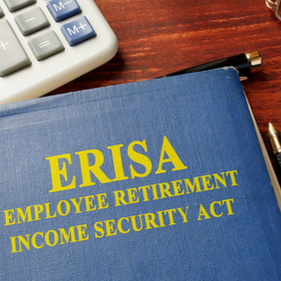New DOL/IRS Rule Tolls Key ERISA Benefit Deadlines

On May 4, 2020, the Internal Revenue Service (IRS) and the Department of Labor (DOL) jointly published a new final rule intended to help ERISA plan participants and beneficiaries retain their ERISA rights or claims during the COVID-19 crisis. The bottom line – the rule tolls key ERISA deadlines and timeframes for the duration of what the DOL/IRS define as the “Outbreak Period.” The Outbreak Period will extend from March 1, 2020 until 60 days after the end of the declared COVID-19 National Emergency or another date the IRS and DOL might later identify.
Particularly in light of the ongoing public health crisis, the most notable area in which the new tolling applies is with respect to group health coverage deadlines.
First, the new rule will extend the special enrollment window during which an otherwise eligible individual may enroll in a group health plan after losing other health coverage. Typically, an individual who had other coverage (for example through a spouse’s employer) and did not enroll in an offered group health plan during the normal enrollment window will have 30 days after he loses his other coverage to request special enrollment in the group health plan. The same special 30 day enrollment window applies for individuals who become eligible dependents mid-year due to a birth, marriage or adoption. Under the new rule, the 30 day special enrollment window for individuals who lose other group health coverage or who become dependents will not begin running until after the end of the Outbreak Period. In other words, the individual who loses his other health coverage or becomes a dependent during the COVID-19 crisis will have 90 days from the end of the declared National Emergency to enroll.
Additionally, the tolling also applies to critical deadlines with respect to Consolidated Omnibus Budget Reconciliation Act (COBRA) continuation coverage. Under COBRA, an individual who experiences a qualifying event that causes her to lose eligibility for her group health insurance (for example a termination or divorce) typically has 60 days to elect to COBRA continuation coverage – which provides the individual with coverage under the plan for a set period of time (normally up to 18 months). Under the new rule, the Outbreak Period will be disregarded for the purposes of calculating the 60 day period and the time for the individual to elect COBRA won’t start running until after the end of the Outbreak Period. Given that a timely COBRA election provides the individual with retroactive coverage back to the date of the qualifying event – this tolling will likely have significant logistical and financial implications for plan administrators and insurance companies. Where individuals typically had approximately two months to decide whether they wanted to elect CORBA coverage, they will have far longer than that under the new rule – meaning that they will have more time to wait and only elect coverage if they incur significant medical costs during the period that would be retroactively covered. Adding to the complication, the tolling also applies to the deadlines for individuals to make their first COBRA premium payment or cure late payments in order to remain eligible for the coverage. The timeframe for initial and subsequent premium payments will also not begin to run until after the end of the Outbreak Period. It is important to note, that while the COBRA election and premium deadlines are tolled, the new rule does not change the timing requirements for plans to provide individuals with the notice of their COBRA rights after a qualifying event.
In addition to group health plans, the new rule also applies to other types of ERISA benefit plans, tolling the deadline and timelines associated with ERISA claims procedures and external reviews until after the end of the Outbreak Period.
While much of the burden of the new rule will fall on the plan administrators and insurance companies, even employers that rely on third party administrators should be aware of these new rules as they may impact personnel planning and benefits decisions during the ongoing crisis.
